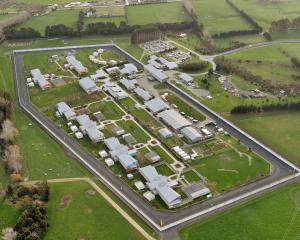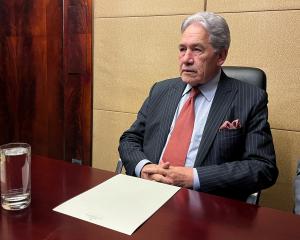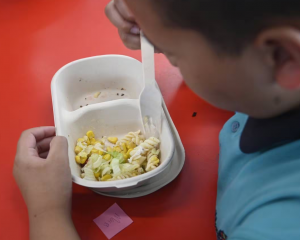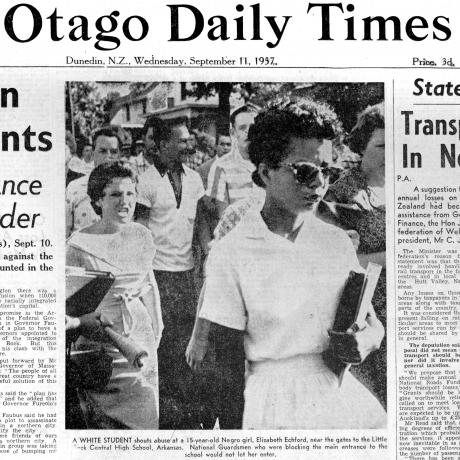
There are some people who view us as respectable, but there are still friends and family who find it funny to remind us of our past actions.
Thank goodness we didn’t have social media to capture forever our immature, ill-informed or offensive comments and behaviours.
Today’s young people aren’t so lucky. We regularly see photos or tweets from someone’s past pulled out to humiliate a politician, call for someone’s resignation or “cancel” someone. Today’s public can be very unforgiving, particularly where someone’s life can be defined by their mistakes. I was in Sydney recently watching the cricket match between Australia and New Zealand. For some reason I felt compelled to boo David Warner, one of those punished for the sandpaper cheating scandal from 2018. How can I let it go when booing makes me laugh and at the same time feel superior?
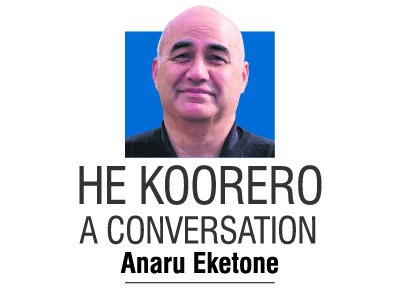
Elizabeth Eckford was trying to meet eight other African-American students, but missed the rendezvous and found herself among a mob objecting to the ending of racially segregated schools. As Eckford tried to make her way to a bus stop she was followed by a crowd harassing her.
The photo shows a 14-year-old white teenager, Hazel Bryan, walking behind Eckford, her face twisted in hate and shouting abuse. Little Rock became a byword for racial intolerance and these two teenagers became its international symbols — one of hate and the other of courage.
The possible unfairness of the image is that there were dozens if not hundreds of others doing the exact same thing, but Hazel Bryan is the one in the picture and it locks her forever as that face of racial hatred. The after story is that six years later Hazel found Elizabeth and apologised for her behaviour. Hazel later became a social worker and in the late 1990s they reconciled for a while, talking to school groups about racial intolerance.
While not wanting to defend Hazel Bryan in any way, I do think people change and we need to find ways to let those who have changed move on without those mistakes always defining their lives. We all change — for instance we don’t say some of the same things we did in the past as we have come to realise how our words can hurt others.
After leaving school in 1979 my first job was working at the ANZ bank. In those days banking wasn’t really a career for working class lads from a state housing area, let alone many Māori, and I found my presence was a little unexpected. There was a regular saying in the branch that whenever someone was asked by another to do something, they would reply “what did your last n..... die of?” After a couple of weeks I asked my colleagues to stop staying this and to their credit, I never heard those words from them again. They thought about it, realised it was wrong and changed their behaviour.
We all change and grow and sometimes it takes a long time and is always incomplete. I look back on my own life and am embarrassed by some of the things I have said and done. I am glad there wasn’t social media or photos recording some of the ways I treated people. Or a blog recording some of my more nuttier ideas.
I can say though, that like most of us, I have grown as a person as I’ve matured. Marriage, I hope, improved me, having children changed me again.
Having adult children continues to challenge and develop my attitudes, causing me to reflect on what I believe, why I believe it and how that affects my words and behaviour.
I hope that as a community we continue to develop ways of allowing people the time and space to grow and change.
We have to believe that people can change, otherwise what is the point of social work, faith, rehab and the multitude of things we do to do better in life. The great hope is that people can and do change.
As a social worker and educator, seeing how people change as they grow greater understanding, is one of my true joys.
Anaru Eketone is an associate professor in social and community work at the University of Otago.






